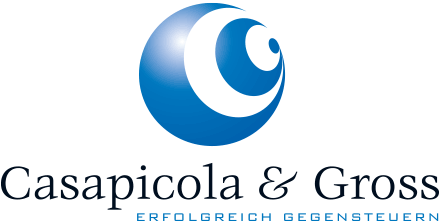Dear clients,
In Austria, companies that carry out research and development are financially supported by the state. They may claim a research premium for certain research and development expenses. This research premium is valid regardless of the legal form of the company.
Amount and calculation of the research premium
For the year 2017 the research premium is 12%, from January 1, 2018 it has been increased to 14%. It is calculated as follows: 14% (from 2018) of the company’s award-eligible expenses.
Benefits of the research premium
It will be credited to the company’s tax account and can then be transferred to the company’s bank account. The research premium itself is not taxable and does not result in a reduction of expenses. Another advantage of the research premium is that it is also available to a company in a loss situation.
The premium is calculated on the basis of certain expenses
The basis of assessment for the calculation of the premium includes the wages and salaries of employees working in research and development, expenditure and investment directly linked to research and development, as well as land (under certain conditions). Besides direct financing costs and overheads are also included in the basis of assessment if they can be allocated to research and development. For example costs of payroll regarding to research personnel, percentage of administrative costs, but not distribution costs.
A) In-house research
In-house research is systematic research and experimental development using scientific methods in a domestic or permanent establishment by the company itself.
Basic research
The aim is solely to gain new scientific knowledge without focusing on its practical applicability.
Applied research
The aim is to gain new insights focused on a specific practical goal.
Experimental development
This refers to the use of scientific knowledge to produce new, improved materials, devices, products, processes, methods or systems.
Expert opinion of the research promotion company
The taxpayer must submit a (free) annual report from the “Forschungsförderungsgesellschaft” (FFG). The FFG assesses whether the substantive prerequisites for research and experimental development basically exist.
In addition, the issuing of a fee-based research confirmation can be applied for at the responsible tax office. This is an information notice according to § 118a BAO, in which the existence of the eligibility requirements is agreed upon. This should increase legal certainty compared to an annual report, especially for several-year research projects.
As an alternative or in addition to the research confirmation, an application for a decision on the amount of the basis of assessment of the research premium for a specific year may be submitted (§ 108c (9) EStG). In addition to an opinion from the FFG, this requires the confirmation of an auditor on the correct determination of the amount of the assessment basis.
B) Contract research
For the premium from a contract research qualitatively the same conditions apply as for the own company research. However, an opinion of the FFG is not required in this case. A research confirmation as well as a declaratory notice are not possible within the framework of contract research.
The research premium can only be claimed for expenses of up to € 1,000,000 per year.
In order to apply for the research premium concerning the expenses of the commissioned research company, the following conditions must be met:
- The research must be commissioned by a domestic company or a domestic facility.
- The commissioned research enterprise (contractor) must be an institution (e.g. university, research association) or a company engaged in research and development and located in the EU or the EEA. However, the contractor’s business focus need not necessarily be on research and experimental development.
- The contractor must not be under the controlling influence of the client or be a member of a group of companies according to § 9 KStG, to which the client also belongs.
- By the end of the financial year, the contracting authority must demonstrably inform the contractor of the extent to which it uses the research award for contract research. The basis of assessment is the costs invoiced by the contractor.
The research and development costs incurred by the contractor cannot result in additional research premiums for the contractor. This excludes double taxation.
Best regards
Manfred Gross
Vienna, March 2018

